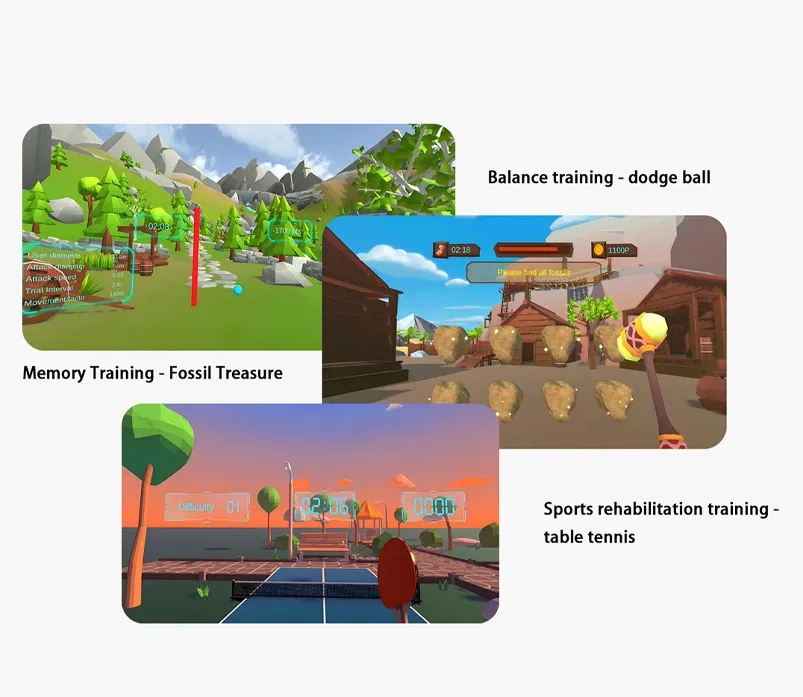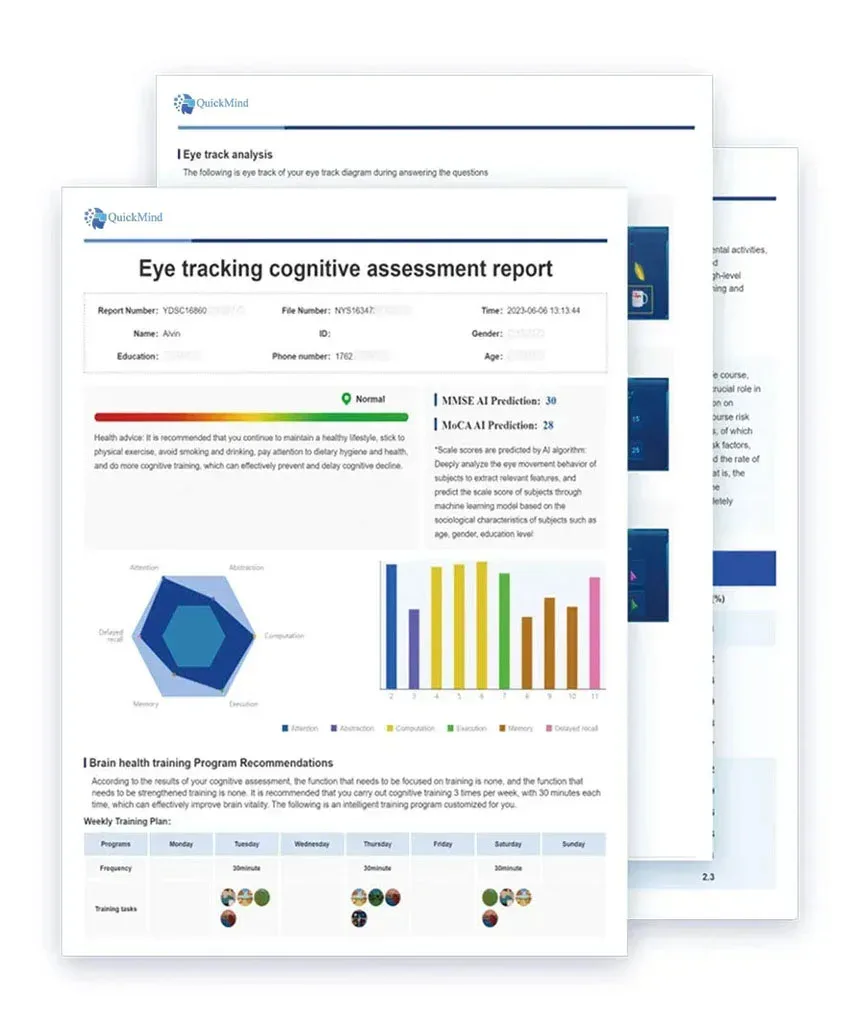
Expanding analyses proposes that virtual simulation intervention can profoundly advance the quality of subjects dealing with cognitive decline. By moving them to soothing settings, VR offers a unique platform for mental activation, emotional stabilization, and personal connection. Countless evaluations have proved that VR therapy can diminish uneasiness, fear, and sadness in dementia persons affected while also improving their recall, heedfulness, and dialogue proficiency.
- VR grants patients with dementia to retrace precious moments through collaborative impressions.
- In addition, it can furnish a reliable and caring space for community involvement, building a awareness of relationship and inclusion.
- Scholars consider that VR therapy has the likelihood to revolutionize dementia service by supplying new and innovative approaches to manage the complex barriers faced by persons managing this affliction.
Tech-Driven Cognitive Therapies for Alzheimer's Patients
Increasing digital treatments are exhibiting benefits in the territory of mental improvement for people managing neurodegenerative Alzheimer type. These programs capitalize on electronic devices to activate brain operation and conceivably curtail the aggravation of the affliction. Fun-packed practices, personalized guidance, and brain-computer training are some examples of strategies being examined in this growing domain. While investigations are happening, digital therapeutics enable a potential route for upgrading the well-being of those affected by Alzheimer's disease.Virtual Environments as New Strategies in Alzheimer's Healing
Regarding individuals dealing with Alzheimer's condition, the slow degradation of mental capacity and neural capabilities can greatly influence their ability to interact with the external setting. This disabling affliction often produces in withdrawal, bewilderment, and a lowered ego recognition. Up-to-date advancements in virtual reality technology present a trailblazing possibility to address these issues by producing immersive landscapes that can encourage the brain and invigorate cognitive function.
Digital reality environments configured specifically for Alzheimer's affected people can transport them in familiar places, such as their childhood abode or a well-liked park area, awakening positive memories and alleviating anxiety. Through interactive missions, these virtual universes can also engage cognitive abilities like recollection, keen observation, and problem-solving.
The likely improvements of virtual reality in Alzheimer's support are considerable. Early analyses have revealed promising results, with persons showing improvements in cognitive ability, mood, and overall quality of life. As this mechanism develops, it holds the key to altering the way we approach Alzheimer's disease, affording a new pathway for therapy and enabling.
VR-Mediated Reminiscence Therapy for Individuals with Alzheimer's
Reminiscence therapy is a traditional technique used to boost cognitive function and affective health in individuals with Alzheimer's disease. This conventional form of therapy involves eliciting patients to share past experiences, often through conversation. However, a novel approach is emerging: VR-mediated reminiscence therapy.
This immersive tool utilizes virtual reality headsets to immerse patients in faithful environments that evoke memories from their past. By recapturing these simulated settings, individuals with Alzheimer's can participate with their past in a valuable way.
VR's Promise for Dementia Care: Enhancing Memory and Cognition
Virtual reality (VR) is emerging as a aspiring technology in the fight against dementia, providing revolutionary ways to activate memory and cognition. By forming immersive environments, VR can help individuals with dementia revisit memories, engage in meaningful activities, and enhance cognitive functions. Studies have revealed that VR interventions can demonstrate substantial improvements in memory recall, attention, and locational awareness. Moreover, VR provides a harmless and beneficial space for individuals with dementia to explore, reducing feelings of isolation and concern.
- Likewise, VR can be adjusted to individual needs and preferences, allowing expanded levels of communication.
- Although the opportunities of VR, further research is needed to fully understand its long-term performance in dementia care.
Recovering Recall and Connections: Virtual Reality's Social Benefits in Alzheimer's
Simulated reality is emerging as a state-of-the-art instrument in the branch of Alzheimer's disease. By building immersive and mutual platforms, VR has the capacity to encourage memories, cultivate social interaction, and enhance the overall quality of life for individuals coping with Alzheimer's. Among the most powerful aspects of VR is its ability to carry users to well-known locations and experiences from their past. Whether it's a jaunt inside a childhood home or a imitation of a beloved holiday, these virtual escapades can invoke happy memories and consolidate cognitive skills. Furthermore, VR can facilitate social interaction by coupling individuals with others who share similar experiences. This can be particularly helpful for people with Alzheimer's who may find it difficult with traditional social connection. By developing a safe and engaging virtual space, VR can lessen feelings of isolation and loneliness, which are common among patients experiencing Alzheimer's. Overall, VR holds immense promise for changing the lives of digital therapy clients with Alzheimer's by refreshing memories, renewing connections, and elevating their quality of life. As technology persists in improve, we can expect even more revolutionary applications of VR in the field of dementia care.Applying Cognitive Training: Utilizing VR for Alzheimer's Symptom Management
Augmented reality experiences is rapidly emerging as a state-of-the-art tool in the realm of cognitive training, particularly for persons experiencing Alzheimer's disease. By immersing patients in interactive and engaging virtual environments, VR-based interventions can enhance cognitive functions such as memory, attention, and problem-solving. These games commonly incorporate elements of storytelling, exploration, and social interaction, making the training process significantly appealing. Studies have shown that VR-based cognitive training can lead to significant improvements in cognitive performance, theoretically delaying the progression of Alzheimer's symptoms. Moreover, VR provides a safe and controlled environment for patients to practice new skills and cultivate their confidence.
- Game-enhanced procedures in VR training can make it extremely immersive and fun for persons with mental decline.
- VR simulations can offer convincing scenarios that provoke and motivate cognitive functions.
- Personalized VR experiences can cater to specific requirements and preferences.
Virtual Reality: New Horizons in Dementia Assistance
Immersive simulated worlds offer a new and positive avenue for participants with mental deterioration. These approaches can construct familiar environments, allowing those affected by cognitive decline to recapture cherished memories and develop a sense of solace. By combating the burdens of dementia, VR worlds have the potential to elevate quality of life for both users and their guardians.
- Examinations indicate that VR techniques can substantially impact cognitive function, affective well-being, and even kinetic abilities in individuals with dementia.
- Moreover, VR affords a safe and structured environment for experience, reducing the risk of discomfort.
- Moreover, VR can support social contacts by allowing individuals with dementia to interact in cyber activities with others.
Virtual Reality for Prompt Alzheimer's Screening and Intervention
Alzheimer's ailment emerges a complex difficulty, often being undiagnosed in its early stages. Despite this, virtual reality (VR) is unfolding as a innovative tool for early detection. Through immersive virtual worlds, VR can assess cognitive performance in ways that traditional methods cannot cope to. This potential allows for immediate action strategies, potentially stalling disease progression and optimizing the quality of life for people with Alzheimer's.
- VR-based assessments can test memory, attention, and spatial awareness in a safe and controlled setting.
- Personalized VR experiences can help patients participate in activities that stimulate cognitive function.
- Virtual environments can provide a supportive and engaging platform for individuals with Alzheimer's to interact.
Virtual Reality Solutions for Better Contact and Engagement in Dementia Care
{In the realm of dementia care, innovative technologies are emerging to augment the lives of people affected by dementia. Virtual reality (VR) is one such innovation that holds immense opportunity for closing social and communicative divides common in dementia patients. By offering absorbing computer-generated environments, VR can activate cognitive function, reduce behavioral issues, and ultimately improve the overall well-being of clients affected by dementia.
VR experiences designed for neurodegenerative disease management can range from nostalgia therapy sessions that guide clients through remembered environments, to interactive games that promote social interaction and cognitive challenge. Furthermore, VR has the capability to connect individuals with dementia to their loved ones, regardless of physical separation, fostering a sense of belonging.
- VR can encourage in reducing agitation and anxiety by providing a calming and enticing environment.
- Investigations have shown that VR interventions can lead to improvements in cognitive function, mood, and social interaction in people affected by dementia.
- As technology progresses to evolve, we can expect even more innovative and {effective|beneficial|helpful|powerful|impactful|successful|productive|efficient
